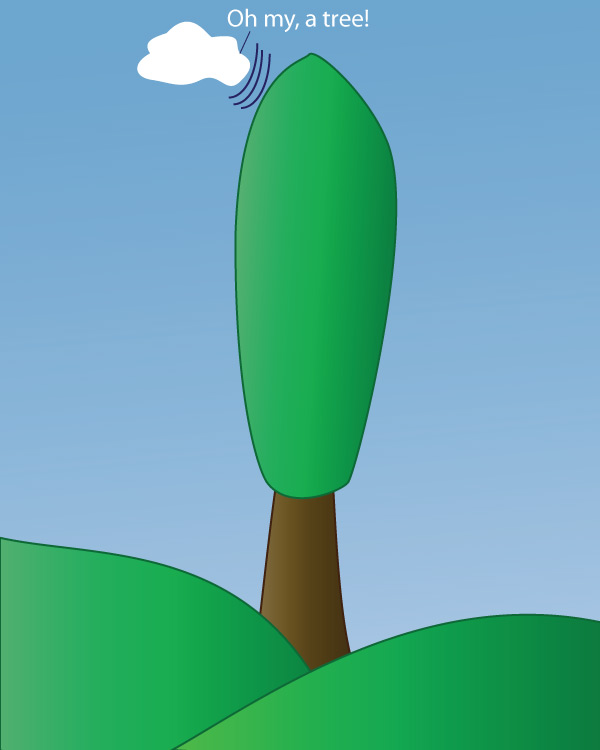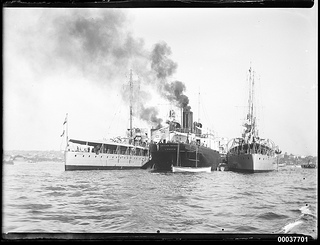When I was aged 9-10 Mr Crimp was my teacher at school. He was an all round cool teacher. You know the ones that motivate you to learn, keep good discipline and yet a sense of fun in the class. I miss those Fielding days.
One of the things he did was every few weeks he would add a poem to our poem book and our task was to first draw appropriate art work by the inscribed poem and second to memorise the poem.
Memorising was one task I took to easily in school. Nether indoor nor outdoor pursuits of any other kind could see me shine as well. Okay I could silent read well above my spelling level but teacher till then had mostly put this down to my pretending to be able to read at above my spelling level. Mr Crimp on the other hand quizzed me on what I had read and then was satisfied I was reading.
But, I digress.
Memorising poems was they way I could publicly be seen as successful in some regard. I was a late bloomer academically and maybe it was the confidence I gained with these poems that let me attack other learning skills at a later date.
I came across one of those poems today on twitter and it brought back the memories. I “lost” my illustrated book of poems many years ago in what I will call a sibling accident. Which sibling and how accidental the scissored pages and the destruction of those said pages were, I have no idea. But lets call it that.
Back to my original theme.
The poem I was referred to by twitter was contained in an article entitled “Why we should memorize Poetry” by Brad Leithauser, in the New Yorker. It was:

The Eagle
by Lord Alfred Tennyson
He clasps the crag with crooked hands;
Close to the sun in lonely lands,
Ringed with the azure world, he stands.
The wrinkled sea beneath him crawls;
He watches from his mountain walls,
And like a thunderbolt he falls.
It made me want to recreate that book, at least in spirit. I remember some of the poems well even now, but some have become hidden in the background of my memory, like the eagle. Once I had the first line most of the rest of it flowed back to me, bright and pure as first I learnt it and rich with the feeling of an old friend rediscovered.So here is my reconstructed book of poems and my thanks to Mr Crimp.
The first poem in the book has never left me. You always remember your first. But who wrote it is long forgotten, remembering names has never been my strong suit. I even forgot my own once, but that is another story. If you know the author, please let me know.

The Poplar Tree
If I were a tall tree,
I know what I would be.
I’d be a poplar growing high,
I’d grow so high I’d touch the sky.
I’d grow and grow and grow,
And wobble to and fro.
And how surprised a cloud would be,
To bump into a poplar tree.
The next could probably have been The Eagle. I remember my attempts at drawing an eagle and the picture being early in the book and on the left hand page. We also learnt short poems first.
The next poem I remember is:
The Sponge A P Herbert
The sponge is not, as you suppose, A funny kind of weed; He lives below the deep blue sea, An animal, like you and me, Though not so good a breed. And when the sponges go to sleep The fearless diver dives; He prongs them with a cruel prong, And, what I think is rather wrong, He also prongs their wives. I know you'd rather not believe Such dreadful things are done; Alas, alas, it is the case; And every time you wash your face You use a skeleton. So that is why I seldom wash, However black I am, But use my flannel if I must, Though even that, to be quite just, Was once a little lamb.
HMS Jervis Bay

Thirty eight ships with food for you,
Twenty eight got safely through.
But of all the ships that berthed that day,
In the Empires heart lies the Jervis Bay
Thirty eight ships full steam ahead,
Off with their needed cargo sped,
While over there where the warship lay.
Guns ablaze went the Jervis Bay.
This was the end their captain knew,
Faegan Knew it and all his crew.
With dying minutes and lives to pay,
Guns ablaze went the Jervis Bay.
Pounded and smashed shattered and lame,
Fighting on with her decks aflame.
She sank with the sun at the dusk of day,
But the guns still spoke on the Jervis Bay.
These poems were not only atttempts to strengthen our memories and expose us to literature, but also teaching moments as we learnt about the time and circumstances of the Jervis Bay the poem came to mean more to us and helped fix the facts in our mind.
The sponge was introduced in a long segment on how to tell an animal from a plant. The last hour of class, if we had gotten through our work for the day was devoted to us coming up with the theories and the refinements on the definitions. Mr Crimp did not tell us the definition and we had writing all over the board that was not rubbed off for the many days we spent on the subject.
The sponge poem, introduced at the end of this segment was like a vindiction of all our hard work. Hard work and fun. The class was in termoil with theories being spoken between friends before being spoken to the classroom. There were disagreements and arguements made for each theory to convince the class. The occasional question was thrown in by Mr Crimp to engender more thought and discussion. For example one first tenant of dividing animals from plants was put forward as animals move and plants do not. Mr Crimp asked f we all thought that was true, we did. He asked what about leaves on trees? Did they not move in the wind? This ensued in a long discussion of how to define movement.
In later years you could tell in science class when the topic of plant and animal kingdom came up who had been in Mr Crimps class and who had not. Each of us from his class had a firm grasp on this topic and how you have to think to define and divide groups. Others inevitably struggled at first, lacking this foundation of knowledge to work from.
The next I remember only in part but wish I remembered it whole still. It has a wonderful heavy distinct rythum to the poem. This exactly suits the subject matter, an elsphant walking. If anyone knows it whoe or knows the author please let me know.
Tong, tong, tonga, tong,That is the rythum of the elephant song,
As the great grey elephant shuffles along,
….
A baby cries in the arms of it’s nurse,
…
Mahut cries …
Tong, tong, tonga, tong
That is the rythum of the elephant song.
The other poems I learned that year refuse to come to the top of my memory at the moment. They rest in the background, as did The Eagle, until another random happenstance brings them back to me.
I treasure the poems I now have with me 40 years on, they come to me unbidden when events or words stir them to the surface and they enrichen those events. Thank you Mr Crimp for setting up my store and the skill to add more throughout my life.

https://margaretgunnng.blogspot.com/2012/12/found-lost-masterpiece.html Probably the elephant poem you wanted to remember